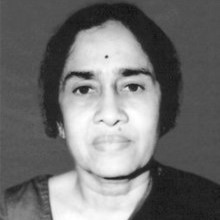Kamala Sohonie

Kamala Sahonie, born on September 14, 1912, in Indore as Kamala Bhagwat, was a trailblazing Indian scientist. She completed her BSc in Physics and Chemistry from Bombay University, where she topped her class. Despite her academic excellence, Kamala faced significant obstacles when she sought admission to the Indian Institute of Science (IISc) in Bangalore. Dr. C V Raman, who was against admitting female students, initially denied her application. After persistent efforts and struggles, Kamala was finally admitted to IISc, albeit with certain conditions. Her dedication and hard work eventually led to the institute opening its doors to female students.
After earning her MSc, Kamala went to Cambridge University, where she worked with eminent scientists and completed her PhD in 1939. Upon returning to India, she worked in Delhi and Coonoor before joining the Biochemistry Department at the Royal Institute of Science in Mumbai after her marriage.
One of her pioneering contributions was her research on Neera, a drink made from sweet palm nectar, legumes, and rice flour, at the suggestion of India’s first President, Dr. Rajendra Prasad. Kamala discovered that Neera contained significant amounts of vitamins and iron, which were retained even when the drink was processed into jaggery and molasses for longer shelf life. Introducing Neera into the diets of malnourished tribal adolescent children and pregnant women led to significant improvements in their overall health.
Kamala Sohonie’s life and work symbolize the challenges and triumphs of pioneering Indian women in science.
Trivia : Kamala Sohonie was the first Indian woman to receive a PhD in a scientific discipline.
References:
- Bright Sparks - Indian Scientists by Arvind Gupta
- Kamala Sohonie - IISER Kolkata
- Kamala Sohonie: India’s Trailblazing Woman Scientist - The Better India
- Kamala Sohonie - Women in Science, IAS